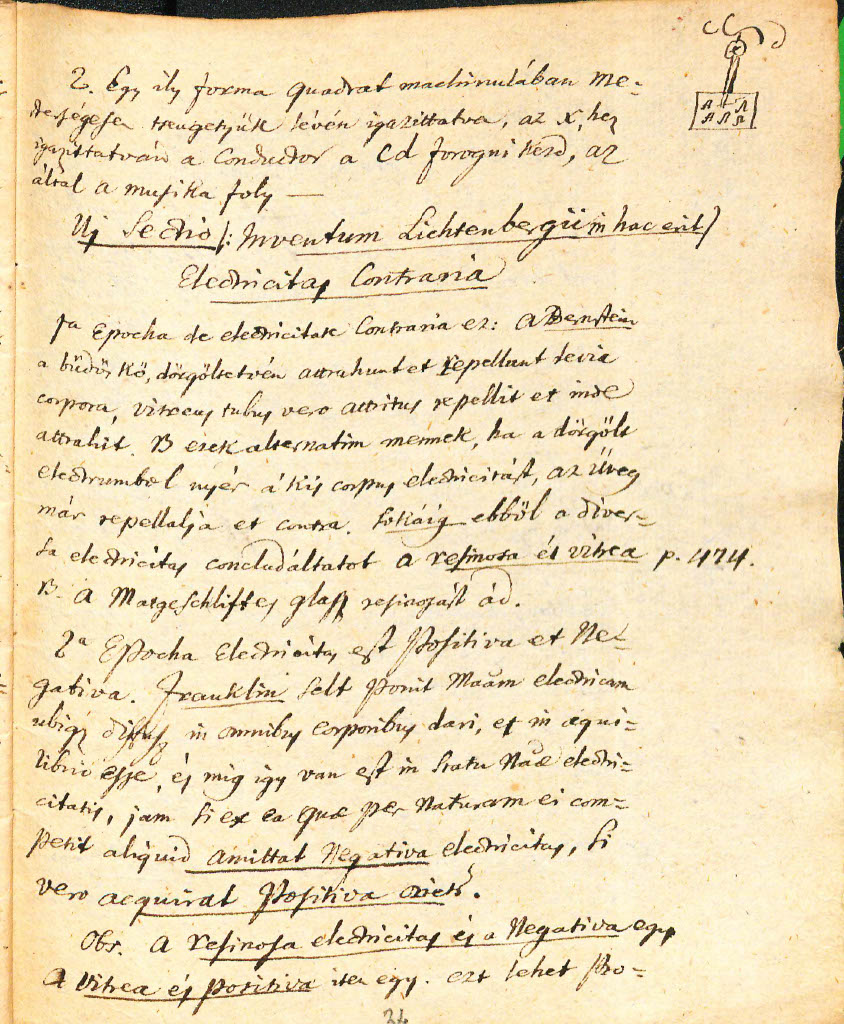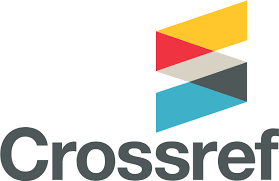The Philosophical and Scientific Historical Aspects of János Körmöczi’s Peregrination to Jena and Göttingen
DOI:
https://doi.org/10.15170/PAAA.2022.09.02.02.Keywords:
Jena, Göttingen, Kolozsvár, German idealism, experimental physics, peregrination, János Körmöczi, Johann Gottlieb Fichte, Georg Christoph LichtenbergAbstract
At the turn of the eighteenth and nineteenth centuries, both Jena and Göttingen were important destinations for Hungarian students, and many of them, including János Körmöczi (1763–1836), visited both universities. Jena, because of the lectures of Carl Leonhard Reinhold, Johann Gottlieb Fichte, and Friedrich Wilhelm Joseph Schelling, became a stage for the development of German idealism, and some Hungarian students, such as Vilmos Kálmán (Wilhelm Kalmann) and Sámuel Bodó, took part in this process to some extent. Körmöczi himself became a mediator of Fichte’s ideas through the translation of one of his pamphlets (Zurückforderung der Denkfreiheit von den Fürsten Europens die sie bisher unterdrückten, 1793), although only a small excerpt was allowed to appear in print. The article identifies the manuscript of Körmöczi’s inaugural speech held in Kolozsvár (Cluj-Napoca, today in Romania) as the translation of another work by Fichte (Einige Vorlesungen über die Bestimmung des Gelehrten, 1794). His illustrated notes of Georg Christoph Lichtenberg’s 1796 Göttingen lectures on experimental physics also meant an important starting point in the process of mediation: the inventory of the equipment store of the Unitarian College of Kolozsvár shows that from 1799 the latest, Körmöczi acquired the instruments for the demonstration of the experiments on electrostatics mentioned in the notes.
Downloads
References
Barta János: Madách Imre. Budapest 1942.
Békés Vera: A hiányzó paradigma. Debrecen, 1997.
Benkő Samu: Göttinga, Gauss és Erdély. Korunk 36. (1977):4. 255–263.
Bodo, Samuel: Versuch eines Vorschlages die Mineralogie wissenschaftlich zu begründen. Annalen der Herzoglichen Societät für die Gesammte Mineralogie zu Jena 1. (1802): 49–70.
Bodo, Samuel: In der gesamten Natur folglich auch in der Mineralogie ist schlechterdings nichts absolut todtes, lebloses und unthätiges, sondern alles thätig, wirkend und produktiv. Annalen der Herzoglichen Societät für die Gesammte Mineralogie zu Jena 2. (1804): 95–110.
Braun, Lucien: A filozófiatörténet története. Budapest, 2001.
Caneva, Kenneth L.: Oersted’s Presentation of Others’ – and His Own Work. In: Hans Christian Ørsted and the Romantic Legacy in Science. Ideas, Disciplines, Practices. Eds. Brain, Robert M. – Cohen, Robert S.– Knudsen, Ole. Cambridge, 2007. 273–338. ǁ [DOI] https://doi.org/10.1007/978-1-4020-2987-5_15 ǁ [Google Scholar] https://tinyurl.com/34p9u39s
Cunningham, Andrew – Jardine, Nikolas (Eds.): Romanticism and the Sciences. Cambridge, 1990.
Csetri Elek: Körmöczi János. Firka 4. (1994–95):4. 137–138.
Deguchi, Yashuo: Kant and Segner. How did Kant give birth to ‘construction’? Kyoto Graduate Journal for Philosophy 38. (2011): 22–34.
Deguchi, Yashuo: Kant and Segner. How did Kant give birth to ‘construction’? Kyoto Graduate Journal for Philosophy. (2012): 1–12.
Egyed Péter: Az erdélyi felvilágosodás és a filozófiaoktatás kapcsolatáról. Korunk 20. (2009):10. (http://epa.oszk.hu/00400/00458/00154/index.htm) [2020.07.28.]
Egyed Péter: A nemzeti filozófia kezdetei. Filozófiaoktatás a protestáns gimnáziumokban Erdélyben a XVIII—XIX. század fordulóján. MTA Kisebbségkutató Intézet pályázati anyag, 2017.
Estes, Yolanda – Bowman, Curtis: J. G. Fichte and the Atheism Dispute (1798–1800). Farnham, 2010.
Fichte, Johann Gottlieb: Előadások a tudás emberének rendeltetéséről. In: Az erkölcstan rendszere. Ford. Berényi Gábor. Budapest, 1976. 7–72.
Fichte, Johann Gottlieb: Az ember rendeltetése. In: Válogatott filozófiai írások. Ford. Kis János. Budapest, 1981. 237–412.
Fichte, Johann Gottlieb: Minden kinyilatkoztatás kritikájának kísérlete. Ford. Rokay Zoltán – Gaspár Csaba László. Budapest, 2003.
Futaky István: Göttinga. A göttingeni Georg-August-Egyetem magyarországi és erdélyi kapcsolatai a felvilágosodás idején és a reformkor kezdetén. Budapest, 2007.
Gaal György: Hajós József: Barangolás kolozsvári könyvtárakban. Művelődéstörténeti tanulmányok. Keresztény Magvető 106. (2000):1–4. 155–159.
Gamauf, Gottlieb: Erinnerungen aus Lichtenbergs Vorlesungen. 5 Bd. Wien – Triest, 1808–1814.
Gellérd Imre: Körmöczi János, a felvilágosodás prédikátora. Keresztény Magvető 89. (1983):1. 45–52.
Giovanni, George di: Karl Leonhard Reinhold and the Enlightenment. Dordrecht – Heidelberg – London – New York, 2009. ǁ [DOI] https://doi.org/10.1007/978-90-481-3227-0 ǁ [Google Scholar] https://tinyurl.com/yhrp9mbb
Gurka Dezső: A Göttingen-kutatás hagyományairól és újabb eredményeiről. In: Göttingen dimenziói. A göttingeni egyetem szerepe a szaktudományok kialakulásában. Szerk. Gurka Dezső. Budapest, 2010. 9–22.
Gurka Dezső: A jénai Ásványtani Társaság hatása a schellingi filozófia magyar recepciójára, In: Felvilágosodás, magyar századforduló. A VII. Hungarológiai Kongresszus Filozófia Szekciójának előadásai. Szerk. Egyed Péter. Kolozsvár, 2012. 30–44.
Gurka, Dezső: Vorträge ungarischer Schellingianer in den Sitzunger der „Societät für die gesammte Mineralogie zu Jena“. In: Deutsche und ungarische Mineralogen in Jena. Wissenstransfer an der Wende des 18–19. Jahrhunderts im Rahmen der „Societät für die gesammte Mineralogie zu Jena“. Hrsg. Gurka, Dezső. Budapest, 2015. 49–76.
Gurka Dezső: Kölcsey Ferenc filozófiai tájékozódásának kanti-fichtei tendenciái. Irodalomtörténeti Közlemények 119. (2015):2. 216–234.
Gurka Dezső: Segner János munkásságának hatása Kant műveiben. In: Matézis, mechanika, metafizika. A 18–19. századi matematika, fizika és csillagászat eredményeinek reprezentációja a filozófiában és az irodalomban. Szerk. Gurka Dezső. Budapest, 2016. 95–115.
Gurka Dezső: A 18–19. századi magyar mineralógus-peregrináció művelődéstörténeti konnotációi. Századok 151. (2017):5. 1043–1062.
Gurka, Dezső – Weigert, Stefan: „Herr Johannes Körmözzi aus Siebenbürgen hat meine sämtlichen Vorlesungen […] mit unausgeseztem Fleiße besucht“. Aufzeichnungen des ungarischen Studenten János Körmöczi nach Georg Christoph Lichtenberg im Jahr 1796. In: Lichtenberg-Jahrbuch 2020. Hrsg. Joost, Ulrich – Moenninghof, Burkhard – Spicker, Friedeman. Heidelberg, 2021. 143–157. ǁ [Google Scholar] https://tinyurl.com/mrwzb5k8
Hajós József: Egy röpirat a gondolatszabadságról. Korunk 31. (1972):12. 1806–1811.
Hajós József: Kellgren és Körmöczi. Nyelv- és Irodalomtudományi Közlemények 37. (1994):2. 123–136.
Hattenhauer, Christian: „… wenn mein Herz mich nicht so sehr an Kiel fesselte“ – Anton Friedrich Justus Thibau. In: 350 Jahre Rechtswissenschaftliche Fakultät der Christian-Albrechts-Universität zu Kiel. Hrsg. Arnauld, Andreas von – Augsberg, Ino – Meyer-Pritzl, Rudolf. Tübingen, 2018. 1–34.
Heerde, Hans-Joachim: Das Publikum der Physik. Lichtenbergs Hörer. Göttingen, 2006.
Inscriptiones Alborum Amicorum. Szerk. Latzkovits Miklós. 2003–2022. (http://iaa.bibl.u-szeged.hu) [2022.09.08.]
Jardine, Nicholas – Secord, James A. – Spary, Emma (Eds.): Cultures of natural history. Cambridge, 1996.
Jacobsen, Anja Skaar: Spirit and Unity: Ørsted’s Fascination by Winterl’s Chemistry. Centaurus 43. (2001):3–4. 184–218. ǁ [DOI] https://doi.org/10.1111/j.1600-0498.2000.cnt430303.x ǁ [Google Scholar] https://tinyurl.com/ae5axy7f
Kirsten, [Johann Friedrich Ernst]: Ist die Minerologie in dem Zustand, wie sie jetzt ist, eine Wissenschaft? Annalen der Herzoglichen Societät für die Gesammte Mineralogie in Jena 2. (1804): 53–70.
Klemme, Heiner F. – Stiening, Gideon – Wunderlich, Falk (Hrsg.): Michael Hißmann (1752–1784). Ein materialistischer Philosoph der deutschen Aufklärung. Berlin, 2013. ǁ [DOI] https://doi.org/10.1524/9783050063355 ǁ [Google Scholar] https://tinyurl.com/yckxxajt
Kovács Sándor: Kénosi Tőzsér János és Uzoni Fosztó István Históriája és az intézményesülő angol–magyar unitárius kapcsolatok. Keresztény Magvető 113. (2007):2. 148–160.
Körmöczi János: Nem minden asszonyok emberek. Egy halotti beszéd Ágh Klára néhai orvosdoktor Barra Ferencz özvegye felett. Kolozsvár, 1800.
Körmöczi János: Az istenség két leányainak a vallás és a józan okosságnak kölcsönös viaskodásai és győzelmei. Kolozsvár, 1800.
Körmöczi János: Az emberség megtanulásának oskolája. Egy halotti beszéd, melyet néhai t. t. pákei Pákai József urnak az erdélyi unitaria ekklésia nagy érdemű generalis notáriussának... érdemlett utolsó tisztesség megadására irt és el is mondott. Kolozsvár, 1802.
Kragh, Helge – Nielsen, Henry (Eds.): Science in Denmark. A Thousand-year History. Aarhus, 2008.
Latzkovits Miklós – Mandity Zorán: Pákei József album amicorumáról. Keresztény Magvető 118. (2012):4. 315–324.
Mokos Gyula: Magyarországi tanulók a jenai egyetemen. Budapest, 1890.
Rasche, Ulrich: Von Fichte zu Metternich. Die Universität Jena und ihre ungarländischen Studenten um 1800. In: Peregrinatio Hungarica – Studenten aus Ungarn an deutschen und österreichischen Hochschulen vom 16. bis zum 20. Jahrhundert. Hrsg. FATA, Marta – Kurucz, Gyula – Schindling, Anton. Stuttgart, 2006. 197–226.
Sauer, Werner: Österreichische Philosophie zwischen Aufklärung und Restauration. Beiträge zur Geschichte der Frühkantianismus in der Donaumonarchie. Amsterdam, 1982. ǁ [DOI] https://doi.org/10.1163/9789004458222 ǁ [Google Scholar] https://tinyurl.com/bddsdkkp
Simon Gábor: Körmöczi János, a Kolozsvári Unitárius Kollégium szertárának megalapítója. Keresztény Magvető 120. (2014):3–4. 382–393.
Snelders, Henricus Adrianus Marie: The Influence of the Dualistic System of Jakob Joseph Winterl (1732–1809) on the German Romantic Era. Isis 61. (1970):2. 231–240. ǁ [DOI] https://doi.org/10.1086/350622 ǁ [Google Scholar] https://tinyurl.com/yyjwx5sh
S. Varga Pál: Történelem és irónia. Madách Imre: Az ember tragédiája. In: A magyar irodalom történetei 2. 1800-tól 1919-ig. Szerk. Szegedy-Maszák Mihály – Veres András. Budapest, 2007. 461–490.
Weiss János: Fichte jénai programja. In: Fichte, Johann Gottlieb: Tudománytan nova methodo. Pécs, 2002. 206–217.

Downloads
Published
How to Cite
Issue
Section
License
Copyright (c) 2023 Per Aspera ad Astra

This work is licensed under a Creative Commons Attribution-NonCommercial-NoDerivatives 4.0 International License.










